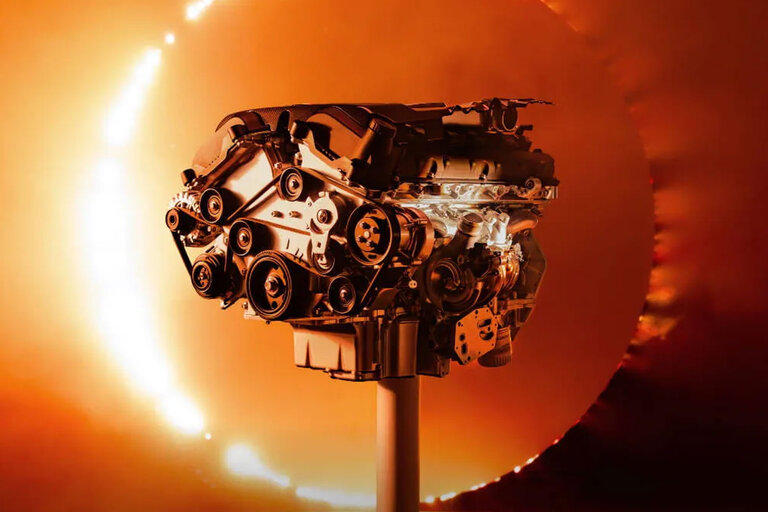
Dean MitchellGetty Images
Collision insurance is a type of car insurance that covers damage to your car from a collision with another vehicle or a stationary object. It also pays for damage from single-car accidents like rollovers. If you carry collision insurance, it reimburses you for the cost of vehicle repairs minus your deductible.
What Does Collision Insurance Cover?
According to NerdWallet, collision insurance pays for vehicle repairs needed after the following incidents:
- A collision with another vehicle
- A collision with an object, such as a tree, fence post, or mailbox
- A single-car accident that involves your vehicle rolling or falling over
- Damage caused by potholes
Suppose another driver hits your car, and they don’t have enough insurance to cover your repair costs. In that case, you can use your collision insurance to cover the costs if you don’t carry uninsured/underinsured insurance. However, as Investopedia points out, there are several circumstances that collision insurance doesn’t cover, including:
- Damage to your car not related to a collision, such as hail or vandalism
- Damage to the other driver’s vehicle if you’re in a collision
- Costs of medical care if you or the other driver are injured
Comprehensive Coverage
If you’re thinking about buying collision insurance, keep in mind that it can only be purchased in conjunction with comprehensive insurance. According to the Insurance Information Institute, the average cost for collision insurance is $290 a year, while comprehensive insurance costs $134 a year on average. Comprehensive insurance covers the following:
- Damage caused by a collision or other contact with an animal
- Damage caused by a natural disaster, including hurricanes, tornadoes, and earthquakes
- Damage caused by fire
- Damage caused by riots or vandalism
- Theft, including the entire car or just parts of the car, such as the air bag.
- Falling objects, including tree branches, ice, or projectiles
- Broken windshield
While your insurance company will require you to purchase comprehensive insurance if you want to buy collision insurance, most insurance companies will let you purchase comprehensive without having to purchase collision. Of course, packages differ from one provider to the next.
Collision Insurance Deductibles
When you file a collision insurance claim, you have to pay a deductible before your coverage kicks in. It’s standard car insurance industry practice to let you choose your deductible amount when you purchase your policy. According to NerdWallet, deductibles typically range from $250 to $1000. The lower your deductible, the higher your premium. If you choose a higher deductible, you can expect to see a decrease in your premium.
While a lower insurance premium sounds ideal, remember that you have to pay your deductible out of pocket when you file a claim. That means that if you choose a $1000 deductible, you have to pay $1000 before your insurance company pays your claim. Make sure you can afford to pay the higher deductible when choosing the amount.
Collision Insurance Limits
As Allstate points out, collision insurance has a limit. This limit is the maximum amount that your car insurance provider is willing to pay toward a covered claim. Typically, your collision insurance limit is the actual cash value of your vehicle minus depreciation.
Suppose you’re in an accident and your vehicle is totaled. After you file a claim on your collision insurance policy and pay your deductible, your insurance company will issue you a check for the depreciated value of your car. If you want to replace your vehicle with a newer truck or SUV, you’ll probably have to cover part of the cost out of pocket.
Should You Purchase Collision Coverage?
Most states only require you to buy a minimum amount of liability insurance, making collision coverage optional. However, as WalletHub notes, if you’re financing or leasing your car, your lending company may require you to carry collision coverage. When you pay your vehicle off, you can choose to drop the extra coverage. Before you drop your collision coverage, you should determine if you can afford to pay for car repairs or replacement out of pocket. If you can’t, you’ll want to continue carrying your collision coverage.
The Insurance Information Institute encourages drivers to ask themselves the following if they’re thinking about dropping their collision coverage:
- Will I save money by dropping my extra coverage? That depends. Your collision insurance costs are determined by your driving history, the value of your vehicle, and how high your deductible is. If your driving record has a lot of violations and accidents, you’re probably paying more than the average rate. In that case, you could save a lot of money by dropping your collision coverage.
- How much money am I risking? If you don’t carry collision insurance, you risk having to pay for a whole new car out of pocket if your current vehicle is totaled in an accident. Even if you can afford to pay for a brand new car, think about what else you could use that money for if you had collision insurance cover your expenses instead. You could put that money towards a college fund, retirement, or other significant expense.
- How likely is it that I’ll have to replace my vehicle? To answer that question, you could take a look at your driving history. If you have a lot of accidents on your record, that could indicate an increased risk. Of course, even if you’re a careful driver and have a clean record, that’s no guarantee that you’ll never have an accident.
In addition to thinking about saving money and whether or not you’re a risky driver, consider the behavior of other drivers. Even the most cautious drivers get into accidents because they come into contact with reckless drivers. If you get into an accident, collision insurance is a quick and easy way to cover repair or replacement costs.
The Insurance Information Institute points out that collision insurance comes in handy if the other driver’s insurance company wants to contest who’s at fault for the accident. Even if it’s clear that the other driver is at fault, they might be underinsured or uninsured. Collision insurance can cover the costs if the other driver is unable to pay.
Sources:
What Is Collision Insurance, and What Does It Cover?
Collision Insurance: What is collision coverage and who should get it?
What is covered by collision and comprehensive auto insurance?
Does Car Insurance Cover a Cracked Windshield?
Average Car Insurance Deductible: Everything You Need to Know
This content is created and maintained by a third party, and imported onto this page to help users provide their email addresses. You may be able to find more information about this and similar content at piano.io
Source link





